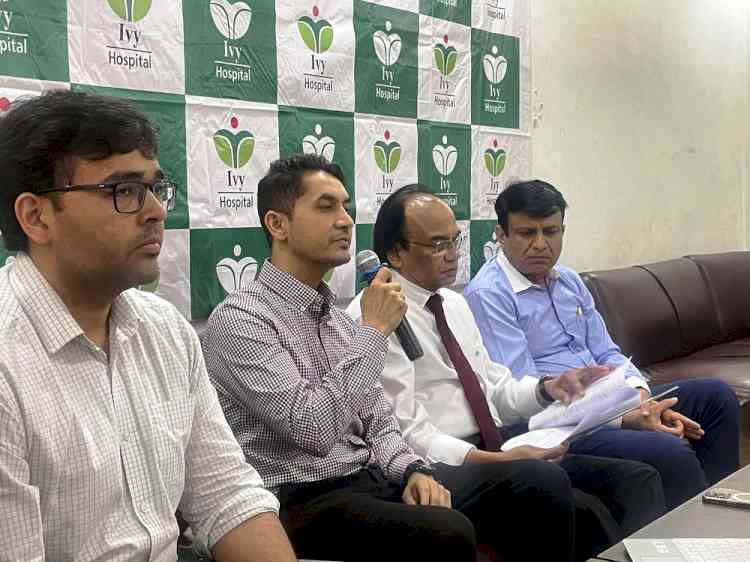Demonetization A Direct Attack On Our Democratic Institutions
Author(s): City Air Newsphoto: city air news It is not an economic exercise but a political gimmick Ludhiana, January 22, 2017: Demonetization has derailed the march of our economic growth besides leading to unprecedented sufferings to...


photo: city air news
It is not an economic exercise but a political gimmick
Ludhiana, January 22, 2017: Demonetization has derailed the march of our economic growth besides leading to unprecedented sufferings to all sections of society including business, trade, industry, agriculture, industrial labour, construction labour, women, pensioners etc. Maximum loss has been suffered by the unorganized sector workers who lost their jobs because of decrease in demand leading to fall in production.
The loss suffered by the economy will take long time to recover from. This was said by Prof Arun Kumar, an economist of international acclaim and author of the book Black Economy In India while addressing a seminar on Impact Of Demonetization On Indian Economy at Ludhiana organised by the Social Thinkers Forum.
The Prime Minister had on 8th November suddenly announced that the high denomination currency notes of Rs. 1000 and Rs. 500 would cease to be legal tender from immediate effect. This was done without taking the Parliament or even the cabinet into confidence and without any preparations to meet the currency shortage. The Prime minster outlined the objectives as curbing terrorist financing and counterfeit currency and to get rid the black money which according to him is the source of poverty and all problems and is a major cause of corruption.
At the end of the day none of the objectives have been achieved and the demonetization has been proved to be complete miscalculation to achieve the above said objectives. As per reports 97% of old currency has been deposited in the banks. There is time for the NRIs to deposit it till 30th March. Then where has the black money gone, he questioned. The counterfeit notes which form only 0.04 % of the total currency and black money in form of cash was only 1% of the black wealth. However, since most of the currency has come back even 0.1% of the black wealth has not been demobilized. Further,since the mechanisms of black income generation will continue there will be no dent on the black economy.
The true cost of this move for the country is the loss of production, suffering of the farmers and workers, decline in investments and the problems for the banks in the country. The reason is that cash is required to circulate incomes and this circulation has been constrained. It is like draining 86% of the blood from the body and replacing it slowly. Even though currency will slowly come back into circulation but irreversibilities have taken hold. With loss of incomes and employment, the economy is sliding into arecessionwhose costwouldrun into lakhs of crores and it would take several years to escape its consequences.
Realising the failure of demonetization in tackling the black economy, the talk suddenly switched to `cash less’ economy. However, it is meaningless in our country where 98% of transactions are done in cash where a large number are unbanked and without smart phones or access to internet or even electricity and where financial literary is minimal. This step requires substantial preparation and could be taken independent of demonetization.
The talk of curbing terrorist activities has proved to be hollow. Terrorism continues as before in various parts of the country. Terrorism cannot be controlled through demonetization. It has to be dealt with through political dialogue and initiatives.
The claim that corruption will be checked by demonetizing the higher currency notes has been belied by issuance of even higher denomination notes of Rs. 2000. There is grave apprehension that the there could be large scale corruption in the time to come.
Two serious issues that have come up are whether the financial institutions should have unlimited control over people’s money and can such big decisions be taken bypassing our democratic institutions. The Prime Minister did not care to respond to the debate in the Parliament even once. He rather made fun of parliament by saying that he preferred the public rallies to parliament. These issues signal dangers ahead.
The decision was a political one based on the idea that the PM could project an image of a Robin Hood who takes from the bad rich guys and gives to the poor. Unfortunately what has happened is that those who did not make black money are in trouble while those who generated black incomes have got away since our systems are very leaky. The pain for the economy and its poor will last long after the promised 50 days. This is one more promise like, bringing back all the black money from abroad and giving Rs.15 lakh to every family. How many promises will be blied?
Prof Jagmohan Singh shared his views on demonetization. Dr Arun Mitra Convener of the Social thinkers Forum welcomed Prof Arun Kumar. Prof Sukhpal Singh summed up the whole discussion. Large number of people participated in discussion and shared their experiences and effect on business and industry. They included D P Maur, Gurnam Sidhu, Ramesh Rattan, Kartar Bowani, Dr Gulzar Pandher, Dr Gurcharan Kocher, Inderjeet Pal Kaur etc.
Co Convener of the Forum M S Bharia compeered the proceedings.

 cityairnews
cityairnews 














